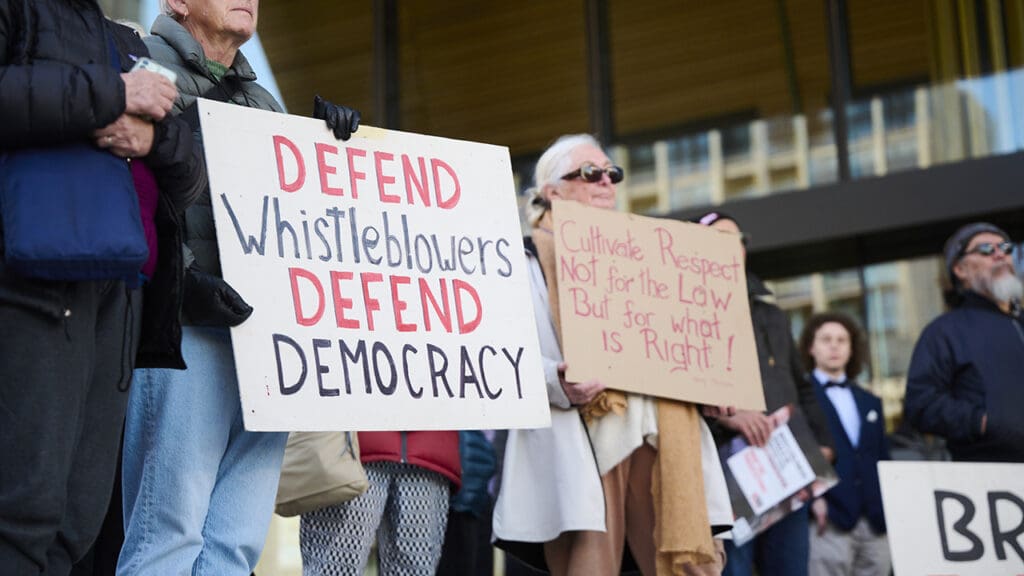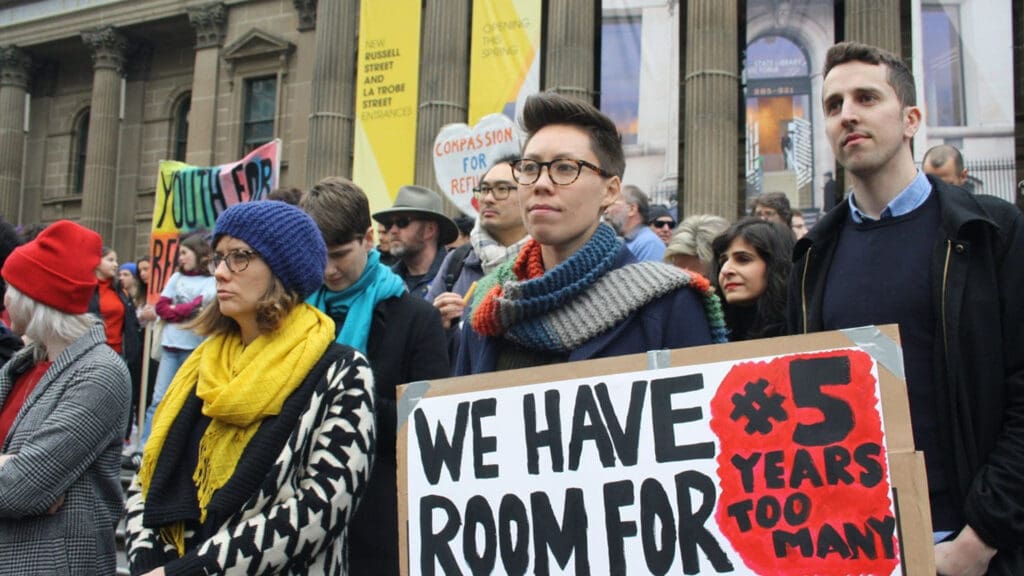Albanese Government response to secrecy review welcome, urgent reform needed
The Human Rights Law Centre has called for urgent reform to whistleblowing and secrecy laws, following the Albanese Government’s largely-positive response to an independent review of Australia’s general secrecy regime, accepting recommendations which will better protect whistleblowers and journalists.
In June, the Independent National Security Legislation Monitor, Jake Blight, found that elements of the secrecy offences in the Criminal Code Act 1995 were inconsistent with the rule of law and human rights principles.
In response, on Wednesday the Attorney-General’s Department accepted 12 recommendations that will narrow and clarify existing secrecy offences, including:
-
repealing an offence that criminalised mere receipt of confidential information by third parties, including journalists, lawyers and civil society groups;
-
removing some aggravating factors which could see whistleblowers jailed for up to a decade;
-
retaining the requirement for the Attorney-General to consent to whistleblower prosecutions under the updated offences and
-
inviting the Commonwealth Director of Public Prosecutions to consider revising the prosecution policy to consider press freedom considerations when prosecuting journalists or publishers.
However, the government’s position on a revised baseline general secrecy offence remains uncertain, while the response does not commit to reframing the current public interest journalism defence as an exception.
Kieran Pender, Associate Legal Director at the Human Rights Law Centre, said:
“This is a broadly positive step for transparency and open government in Australia. Successive reviews have found that Australia’s secrecy laws are unduly sweeping, disproportionate and have no place is a healthy democracy; reform is urgent and overdue. The Albanese Government’s acceptance of many of the Monitor’s recommendations is a welcome development.
“Time is running out for the Albanese Government to act. Despite being elected with a stated commitment to improve transparency and accountability, this has not yet translated to genuine reform. The sunset date for secrecy offences was recently extended by 18 months, while we are still yet to see comprehensive reform of public sector whistleblowing law.
“These sweeping secrecy laws continue to pose a daily risk whistleblowers, human rights defenders and journalists – and are having a chilling effect on accountability. Every day whistleblowers remain imprisoned or facing ongoing prosecution, our democracy suffers.
“The Albanese Government must commit to enacting these secrecy reforms and fixing public sector whistleblowing law before the next election.”
See the Human Rights Law Centre’s submission to the Monitor’s review here, drawing on the first-hand experience of the Whistleblower Project, Australia’s first dedicated legal service for whistleblowers.
Media contact:
Chandi Bates
Media and Communications Manager
Human Rights Law Centre
0430 277 254
chandi.bates@hrlc.org.au

Legal challenge against Tasmanian parole board’s new gag order against Susan Neill-Fraser
The Human Rights Law Centre has brought further legal proceedings on behalf of Tasmanian grandmother, Susan Neill-Fraser, to challenge a new restrictive parole condition.
Read more
Albanese Government must take opportunity to protect whistleblowers
The Albanese Government is being pushed to take the opportunity to enact stronger legal protections for whistleblowers and establish a Whistleblower Protection Authority, at a Parliamentary Inquiry today.
Read more
Allan Government’s kneejerk law and order response will not make communities safer from racism and hate crimes
Racist and antisemitic attacks, such as the horrific arson attack on East Melbourne Hebrew Congregation have no place in our community. Every person has the right to practice their religion without fear of intimidation or vilification, and to be protected from acts of hate speech, racism and violence.
Read more



